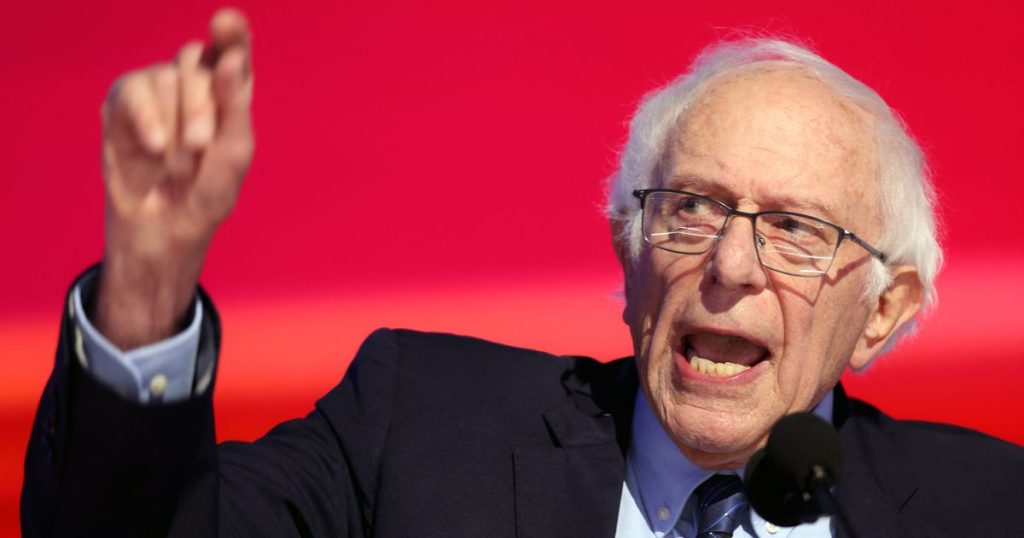Sen. Bernie Sanders delivered a speech at the Democratic National Convention in which he framed the upcoming election as a battle against the “oligarchs” and the “billionaire class.” He began by highlighting the challenges the country faced when President Joe Biden and Vice President Kamala Harris took office, including the COVID-19 pandemic and economic downturn. Sanders praised the Biden-Harris administration for their efforts to provide relief to Americans through measures like stimulus payments, expanded unemployment insurance, and an enhanced child tax credit. He emphasized the need for political will to address the struggles of working Americans, calling for an economy that benefits everyone, not just the wealthy elite.
Sanders then transitioned into his familiar message of advocating for social democracy and standing up to the billionaire class. He criticized the top 1% for their disproportionate wealth and power, arguing that policies like taxing the rich, expanding healthcare coverage, and increasing Social Security benefits are necessary to address economic inequalities. Sanders rejected the notion that these ideas are radical, contrasting them with the regressive agenda put forth by former President Donald Trump. He also criticized the influence of billionaires and super PACs in elections, emphasizing the need to limit their ability to buy political power.
The senator’s populist message resonated with the audience, particularly as he called for an end to the war in Gaza and a ceasefire to prevent further violence. Sanders’ remarks were notable in contrast to other speakers at the convention, such as Illinois Gov. J.B. Pritzker and former American Express CEO Ken Chenault, who highlighted different perspectives on economic policies and business-friendly approaches. Despite these differences, Sanders’s forceful advocacy for progressive priorities, such as healthcare expansion and wealth redistribution, drew strong applause from the crowd.
Sanders’s speech reflected his longstanding commitment to fighting for economic justice and challenging the influence of powerful interest groups. By framing the election as a battle between the interests of the wealthy elite and the needs of working Americans, he sought to energize the party’s base and mobilize support for progressive policies. His message resonated with many in the audience who shared his concerns about income inequality, healthcare access, and the role of money in politics. Overall, Sanders’s speech at the convention was a rallying call for Democrats to prioritize the needs of the people over the interests of the wealthy few, setting the stage for a decisive electoral campaign.


